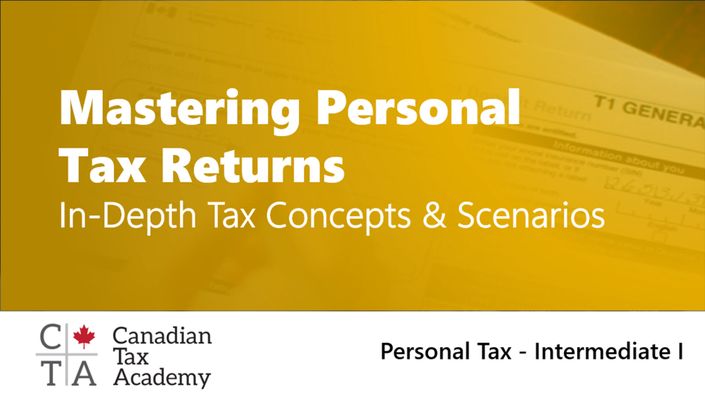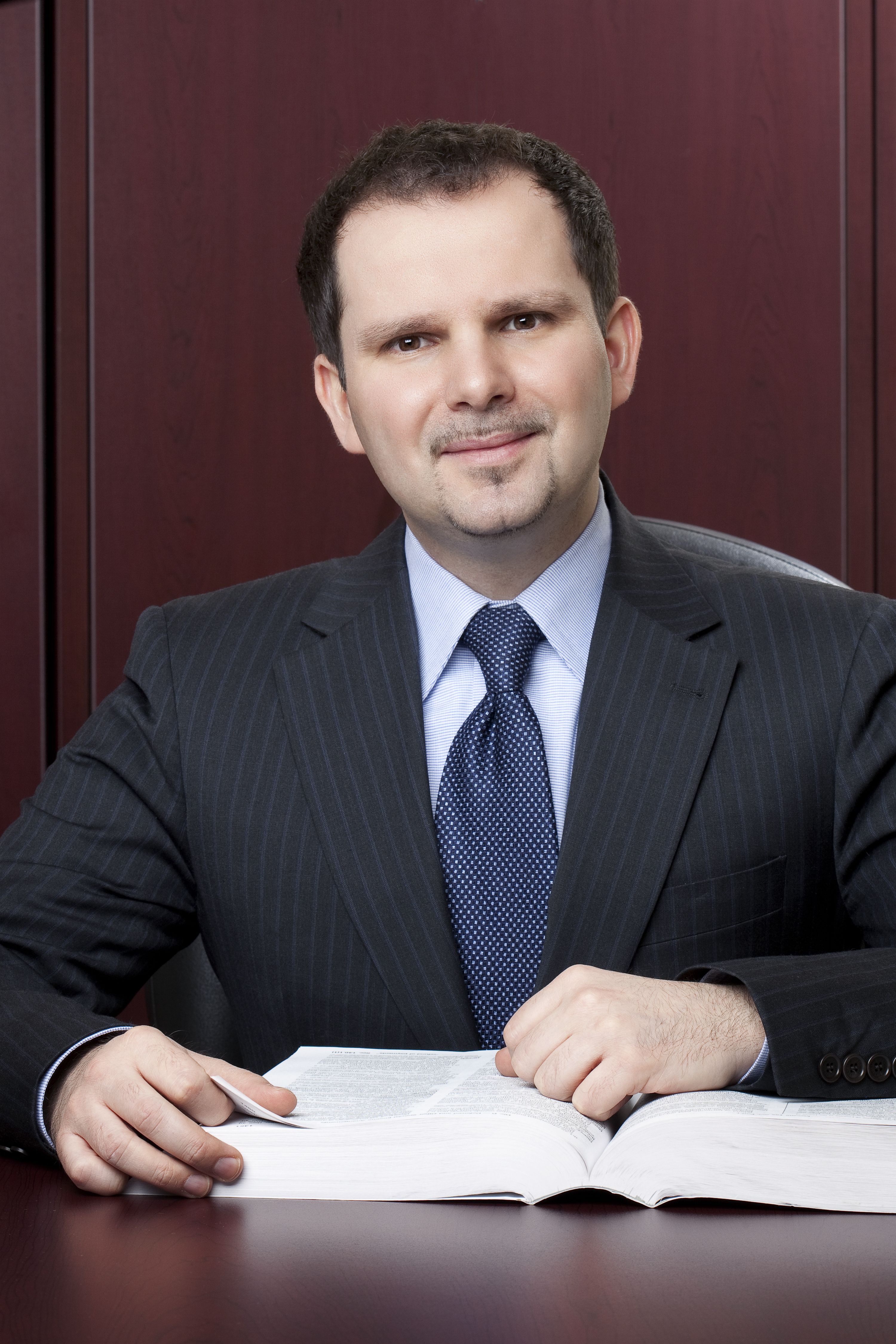
Mastering Personal Tax Returns
Intermediate I - In-Depth Concepts & Scenarios
All future updates are included in this one time fee - The course is updated regularly at no additional charge to students who have purchased the course. Annual All Access members always have access to the most recent version of the course.
USE IT AS A VALUABLE TAX RESOURCE ALL YEAR ROUND - THE INSTRUCTIONAL APPROACH USED IN THIS COURSE IS EVERGREEN. WE TEACH YOU ABOUT THE PERSONAL TAX PREPARATION PROCESS REGARDLESS OF THE YEAR YOU ARE PREPARING.
CPD HOURS FOR THIS COURSE - 15 VERIFIABLE HOURS FOR CPA CPD PURPOSES
SCROLL DOWN THIS PAGE TO SEE THE FULL CURRICULUM (CLICK THE DOWN ARROW TO EXPAND THE BOX) & WATCH SAMPLES OF VIDEO TUTORIALS
PREPARING TAX RETURNS FOR FAMILIES
Gain a thorough understanding of family-related tax considerations, including dependents, child care expenses, and family tax credits. Learn how to maximize tax benefits for various family scenarios, ensuring that every eligible credit and deduction is claimed.
- Advice on entering information slips and income into each family member’s return to ensure the CRA processes them properly and avoid time-consuming headaches later on
- Claiming child care expense deductions on the higher income spouse. Criteria and detailed example of how to do it
- Understanding the importance of not following “rules of thumb” blindly on medical expense claims and where it makes sense to claim it on the higher income spouse
- Walk-through of the most common issues you will encounter when dealing with student tax returns. What if the student doesn’t want to transfer the tuition to parents? What if the tuition wasn’t claimed in previous years?
- A comprehensive chapter on the importance of tax planning for seniors. How to split pension income properly and deal with common, but stressful, situations when clients are cut off from their Old Age Security (OAS)
PRINCIPAL RESIDENCE REPORTING ISSUES
Tax reporting of principal residences has changed and will likely undergo more changes. Claiming the exemption is not as easy as it seems. Little mistakes or oversites could have substantial implications in the future.
Change in Use Rules - Many Canadians use rental properties as a source of income. What happens when you want to convert your principal residence to a rental property? What if you have a rental property that you want to move into yourself? Section 45 elections demystified
Principal Residence Tax Planning - Many people assume that selling a principal residence is automatically exempt from taxes. This is not the case. We teach you how to analyze a transaction and report it properly before CRA challenges you.
TAX RETURNS FOR INVESTORS
- A critical look at how information is downloaded from the CRA’s Auto Fill My Return service and software feature and what you need to understand and look out for. If you don’t know or understand this, you can be making serious mistakes on your or your clients’ returns
- Save hours of time by understanding investment reports and what you actually need to enter on a tax return to file it
- What happens when you sell items such as jewelry? A coin or comic collection? Art? Often misunderstood and not covered in other courses, we examine the intricacies of Personal Use Property (PUP) and Listed Personal Property (LPP)
- Gain a deeper understanding of the T1135 and Foreign Tax Credits. Do clients how own a personal property in Florida that they rent out occasionally have to file the T1135? What about first time newcomers to Canada who still have foreign assets?
TAX RETURNS FOR RENTERS
Reporting of rental income may seem relatively straight forward, which is true. Claiming rental income and deductible expenses is quite intuitive and doesn't require a lot of work. However, there are many traps and pitfalls that await if you are unaware of what the CRA examines when they do a review or audit of rental income. There are many situations where you may be reporting rental income inappropriately.
- If you or a client are renting out properties to family members or people not being deal with at arm's length, the CRA may come knocking on your door asking questions
- Often overlooked are expenses paid by one partner on a jointly owned rental property. If you are not reporting these accurately, you could be doing a disservice to one of the partners at the benefit of others.
- Dealing with Capital Cost Allowance (CCA) on rental properties can be tricky. It can also result in more taxes being paid in the long run if you are not examining the situation closely and doing the right planning. Making sure you understand what is at stake is critical to either reporting your own rental income or consulting clients.
BUSINESS TAX RETURNS & REPORTING ISSUES
Spotting and dealing with the most common business income reporting issues such as reporting and dangers of cash businesses, claiming business losses and what you may encounter when dealing with the Canada Revenue Agency (CRA) on business income
- Demystifying Capital Cost Allowance and sorting through the difficulties of claiming CCA on passenger vehicles (Class 10.1) vs. motor vehicles (Class 10) for business owners using their vehicle for business.
- How to deal with CPP premiums for self-employed who are over the age of 60. Understand who needs to contribute to the Canada Pension Plan (CPP) and for how long before they can opt-out or stop contributing
- Advice and methodology on applying for Self-Employed Employment Insurance (EI Benefits). What is covered and what isn't? Step-by-step follow through on the application and reporting process. We'll also cover the critical decisions a self-employed parent has to understand before applying for and collecting Employment Insurance.
- A thorough review of partnership income and how to report the partnership's income vs. claiming expenses for individual partners. Also covered is a critical and often overlooked area when dealing with partners: The Partnership Capital Account.
- One unit is devoted to reporting issues related to the Platform Economy. Understand how the GST/HST reporting rules work for those people who have Ride Sharing income (Uber, Lyft, Uber Eats, Skip the Dishes) and rental property income from Airbnb or similar apps
OTHER CRITICAL TOPICS & REPORTING REQUIREMENTS
Medical Expenses - Master the intricacies of medical expenses including the analysis necessary to claim the best available credit amount. Demystifying the nursing home and retirement home confusion that often results in CRA reassessments when they disallow medical expense's. You'll also learn how to research which medical expenses will be accepted by the CRA and which will not.
Employment Expenses & Deductions - Detailed review of employment expenses and the most common errors made on tax returns. A review of real-world T2200 forms
Allowable Investment Losses (ABIL's) - A detailed review of what they are and how to claim them. More importantly we examine the necessary paperwork and documents necessary to allow the CRA to claim this expense. This is one of the most misunderstood claim and one of the most frequently challenged by CRA
Frequently Asked Questions
Your Instructor

Ian DINovo is a professional accountant and Director of the Canadian Tax Academy. He has been practicing accounting and offering independent financial and business advice for over 20 years.
He is the creator of a number of courses dealing with business, tax and investment matters that are designed to make difficult topics easy to understand for everyone.
Course Curriculum
-
PreviewIntroduction to the Intermediate Masterclass on Personal Taxes - What we will be covering (7:53)
-
PreviewMethodical way to learn and understand tax - Compared to learning music and an instrument (4:53)
-
StartAdministration - Course Payments, Refund policy, certificates of completion (6:25)
-
StartDOWNLOAD - PowerPoint Presentation file & PDF of slides
-
PreviewUnderstanding how you should use tax software to study and understand tax (10:40)
-
StartHow to use tax software to study and understand certain problems and areas of difficulty to focus in on (7:44)
-
StartUsing tax software to help you prepare prior year tax returns for clients who have not filed (7:36)
-
StartAre there any benefits to filing as a couple/family? Income splitting? (5:03)
-
StartThe types of income you can split between spouses (3:13)
-
PreviewBe consistent in claiming ownership percentages and don't change (5:22)
-
StartA review of the attribution rules and what it means in a real practice (6:17)
-
StartThe benefits of combining donations and some of the issues you may run into (2:40)
-
StartCombining all medical on one spouse return but doing some analysis as well (3:36)
-
StartExample of the medical expense analysis and claiming on higher income spouse (4:29)
-
StartAnalyze prior year medical expenses and returns for 12 month period (4:05)
